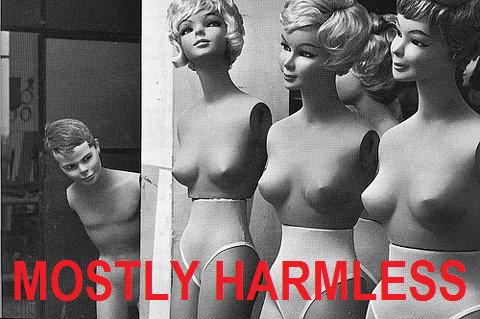
In October 2004, at the age of 16, I signed myself up as a member of the Liberal Democrats, as the party manifesto seemed to most closely reflect my own opinions at the time. Although they could never have established a government 6 years ago, they were seeing an upsurge in support, that even then seemed to show that sometime, maybe decades away, but sometime, it was possible the most principled of the big three parties could end up in government.
Fast forward to 2010, and the tragedy of this election, is that there is no option on the ballot that says "Anyone but Conservatives". If only it could be that simple.
Following on from the first wave of Cleggmania, out electioneering, the response in my constituency towards the party was phenomenal. People were genuinely interested in the message. For a while, there seemed hope that the Liberal Democrats were a synonym of "Not Conservative". The trouble with this, is it is very easy to vocalise your support online or gratefully accept a flyer.
After the election result, the over-riding opinion within the party seems to be that we did not capitalise on this support properly - being grossly unprepared. Additionally, many of those who said they'd vote simply didn't. This is a tragedy.
And still the Liberal percentage share increased despite seats going down, which is a clear case for electoral reform, which you should understand, but if you don't I will briefly explain why it is required.
27% of people vote Conservative.
26% vote Labour.
25% vote Lib Dem.
This means the Conservatives win, despite the majority of the constituency not voting for them.
This combined however, to form a hung parliament, which would be the staple of a government elected under proportional representation. And although the coalition between the Conservatives and the Lib Dems seems like an odd matching, the reality is quite different.
One of the ongoing complaints by people who voted Liberal is that they did so to stop the Conservatives getting in power. I've always had a problem with the term 'in power' anyway, as politicians should never strive for power, they are there to serve. So even if the Tory's did get 'In Power' the world would keep on turning, we'd probably just be a bit more pissed off.
Nonetheless, what these new breed of Lib Dem voters fail to realise is that the Conservatives were always considered a shoe-in for electoral success. This time around, the election was supposed to be marred by voter apathy and a subsequent Conservative regime. This has been an historical moment, not least because it was stopped, but also because of the unlikely coalition.
Internet moralists are vocal in their disdain for the Conservatives, and for Nick Clegg for his helping them in to government. This is a simple conclusion to make, and simple conclusions are usually wrong when you investigate them more deeply.
The electorate produced a result with no clear majority. This led to 3 potential scenarios:
Scenario 1: The Liberals construct a coalition with Labour.
The problem with this is that this coalition would also not have the required number of MP's. It would have meant a tie in with nationalist parties who would disproportionately benefit from their pivotal position. Additionally, forming a minority government to counter a potential minority government just seems wrong. Even to me.
Outcome: Coalition collapses due to too much emphasis on minority parties. There is another election. Lib Dem vote is decimated. Conservatives win a majority.
Scenario 2: Conservatives form a minority government with support from Liberals on certain issues.
The problem with this is the minority government is inherently weak. This would be picked upon almost instantly. There would be a need for another election to form a decisive result.
Outcome: The Conservatives, as clearly the only party who could possibly form a majority would win another election, and form a majority government.
Scenario 3: Conservatives form a coalition government with the Liberals.
Although this is an unlikely arrangement, and it still means the Conservatives end up in government, the result means that the Liberals do as well. The result of this is that a clear government with a majority of MP's between them is formed. Although the parties are diametrically opposed on many issues, they can still work together. This is the only possible scenario in the entire election which, although doesn't stop the Conservatives, at least can reign them in.
Outcome: It is therefore fair to assume that the Liberals manage to push through some of their more important policies, such as increasing the income tax threshold and electoral reform, whilst obviously having to relinquish ground on some issue such as the nuclear deterrent.
This is a fair compromise, as government should be.
.jpg)
No comments:
Post a Comment